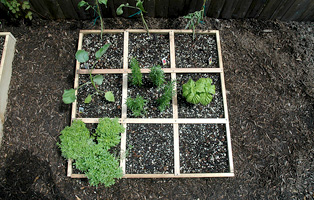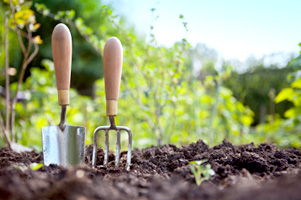How come – Vital Veggies
Hi, I’m Roger Carthew, the founder of Vital Veggies. I can think of no better way of explaining “why grow your own veggies”, than to share my own story. Personally I like to look after my own health. That means taking care of your body with some exercise and good nutritious food. Exercise I had covered with running, bushwalking and surfing. The good nutritious food was another story.
I subscribe to the view that we are what we eat. Testimony to that is that I’ve not been to a doctor for longer than I can remember – and that’s well over thirty years.
So, I used to eat what I will describe as conventional produce. Grown on farms where they use chemical fertilizers, pesticides and herbicides. These are things like super phosphate, urea, MAP and DAP and then glyphosate and more. There’s an astounding array of toxic materials that are used to grow our food when in reality there is no need.
It’s a question of understanding how half of the word agri-culture is made up of “culture” and that’s the way we do things – our culture. Change the culture of growing food and you can get entirely different outcomes, plus all those chemical “nasties” are not required.
How I grow veggies
Before I tell you why I grow my own food, you ought to know how I do it. I use..
biologically active soil
rock dusts of a wide variety to promote soil biology
organic seeds where they are available
grow my own seedlings to reduce plant stressors – bigger pots for a larger root ball
annual applications of biodynamic compost; self made – using animal manures, sawdust, all kinds of vegetable scraps, poultry and pigeon manure plus biodynamic preparations and then lots of time.
humates to boost the soils ability to store and release all forms of nutrients
compost teas, inoculum of myccorrhizae fungi and other beneficial micro-organisms
soil tests to indicate soil amendments required to balance soil nutrients, ensure all trace elements are available and soil acidity is in the range of 6.5 to 7.0

The soil and its web of life is mind numbingly complex where the first rule is that everything is connected to everything else. In fact there is no something else; it is all part of the whole including the plant life that lives therewithin.
This is not only an organic way of growing, it is beyond organic. Of the food that can be grown in a veggie garden, this is how I do it. It took me many years of research and discovery to arrive where I am. There’s no doubt you can do the same, but I’m wanting to share what I’ve learnt and so make it easier for you.
Why I grow my own veggies
There are many, many reasons to grow your own food. Here’s what I think contributes to my sense of why an activity like gardening can be so important in our lives. Maybe you have others?
Toxic Chemicals and sick plants: I don’t like the idea of eating foods that have been sprayed with toxic chemicals of any kind and has the possibility of residues that are toxic. Pests, moulds and fungi, all of which attacks plants are an indicator, telling us to improve the health of the soil.
Taste: I like foods that have real taste because that indicates how they were grown. And it tells me the grower eats the food themselves.
Not safe: I have a healthy distrust that things toxic to other forms of life can be safe for us in whatever doses
Food as Medicine: I like the idea of food being a nutraceutical. Hippocrates two thousand five hundred years ago got this when he is quoted to have said, “let food be thy medicine and medicine be thy food.
Balanced, healthy food: Foods grown in healthy soils naturally have the correct ratios of carbon to nitrogen and are replete with a full spectrum of trace minerals
Convenience: it’s extremely convenient to pick your food as you need it saving on electricity for refrigeration and trips to the shops.
Fresh as: the food is as fresh as!
Locavore: it brings new meaning to being a locavore
Food miles: it dramatically cuts down on food miles
Fun and enjoyable: its both satisfying and its fun
Healthier: it’s healthier for you – being outdoors and active and then from the benefits of the food itself
Water saving: backyard veggie gardens use 5 times less water than farm grown produce – so we save on water
Friendly and sharing: every gardener I know often grows more than needed so you can preserve it or give it away, feeding friends and family or the local community.
Reject GMOs I think the “substantially equivalent” ruse put up by the proponents of genetically modified foods (GMOs) do so sadly to the detriment of those who put this food in their mouths. Our ability to metabolize sugars, carbohydrates, fats and proteins, all of which comes from food, developed ever so slowly as man developed the capacity to break those materials down. GMOs do not get metabolized in the same way as non GMO foods. Avoid them and growing them in your garden is not a choice I would support.
More sustainable: as you become more proficient as a gardener you can look at “closing the loop” on your garden, reducing the external inputs and recycling everything back into reusable compost –reducing your reliance on others for your food.
More nutrients: based on United States Department of Agriculture (USDA) research, conventionally grown foods today are between 40 to 70 less nutrient dense than 50 years ago – and getting worse with each passing year.”. Organically grown foods are more nutrient dense.
Save money: growing your own food can cut the cost of your grocery bill.
Exercise, fresh air: gardening provides you with exercise, fresh air and sunshine
No cancer causing residues: eating conventional produce may contain up to eight widely used cancer-causing pesticides. In children, these toxins are four times more potent than in adults. Protecting children’s health is greatly important.
Cure Cancer : Scientists have discovered a cancer curing bacterium in soil. This bacterium, Clostridia Sporongenes is common in soil. As you garden, theses bacterium can enter our bodies and help cure cancer.
No erosion: conventional farms mine the soil through erosion, both through the action of wind, water and mineral depletion.
No nutrient run-offs conventional farm fertilizers overdose on nitrogenous fertilizers, most of which is washed away, leached or chemically bound into the soil. This very nitrogen is then responsible for eutrification of waterways and nitrate contamination of ground water.
Diversity of habitat: backyard gardens provide diverse habitats for many types of life and hence promote biodiversity
Teaches children: if you have children, gardening is a good activity for them; teaching them about soil, seeds, plant and wildlife interactions and much, much more.
Reduces stress: gardening relieves stress
Mental Health: there’s a strong link between improved mental health and touching the earth as one does when gardening.
Saves fossil fuels: based on scientific research, we use 10 calories of energy to grow one calorie of food. Backyard veggie gardens have nothing like this energy deficit and so save valuable fossil fuels.
More variety: you can choose to grow a greater variety of produce, exotic vegetables and fruits you’ll never find in a supermarket or fresh food shop.
Control of what’s on and in your food: with a veggie garden you begin to regain sovereignty over your food. What you put in your mouth should be your choice and a veggie garden is a huge step to regaining that. It alleviates potential food shortages and the impact of fluctuating food prices.
Retains food knowledge: gardening preserves the knowledge of how to feed ourselves – a most valuable skill in times of increasing uncertainty.
Needs preserving skills to manage surpluses: managing the surplus of a season teaches us about how to keep foods through fermentation, drying, salting and canning/preserving.
Seed stock diversity: gardening helps preserve the diversity of seed stocks we have available for growing food.
Our place in the world: and finally, you connect with the earth and the world around you when you get linked into the seasonality of produce, planting by the phases of the moon, the availability of sun and rain and the tilth of healthy soil.
Starting: This list gives compelling grounds not to delay any further. Call us - you'll be amazed at how helpful we are.
What to grow: You can grow the things you really love to eat and also choose the simpler things to grow at the beginning.

Call us at Vital Veggies and have us help you with your veggie garden. There’s certainly no lack of reasons to do so. In as little as six to eight weeks you could be eating from your very own garden and enjoying any number of the very good reasons to have a veggie garden.
In closing, growing your food in your own garden is now considered to be act of revolution; of rebellion against the types of agriculture that destroyed biodiversity - landscapes, taken control of seeds from farmers into the hands of global corporations and exposed us to carcinogenic toxins in our foods. Not to mention, depleting the ability of soil to the point where conventionally grow fresh produce, leads to sickness, not our health and wellbeing.
Grow your own food – it is an act of rebellion and no one can stop you! Act now – it’s a great cause – your own health and wellbeing. Whether you start with a solitary pot, a raised bed garden or an in-ground garden, just start and be prepared to learn. And remember, Vital Veggies is there to help you become a superlative gardener.

